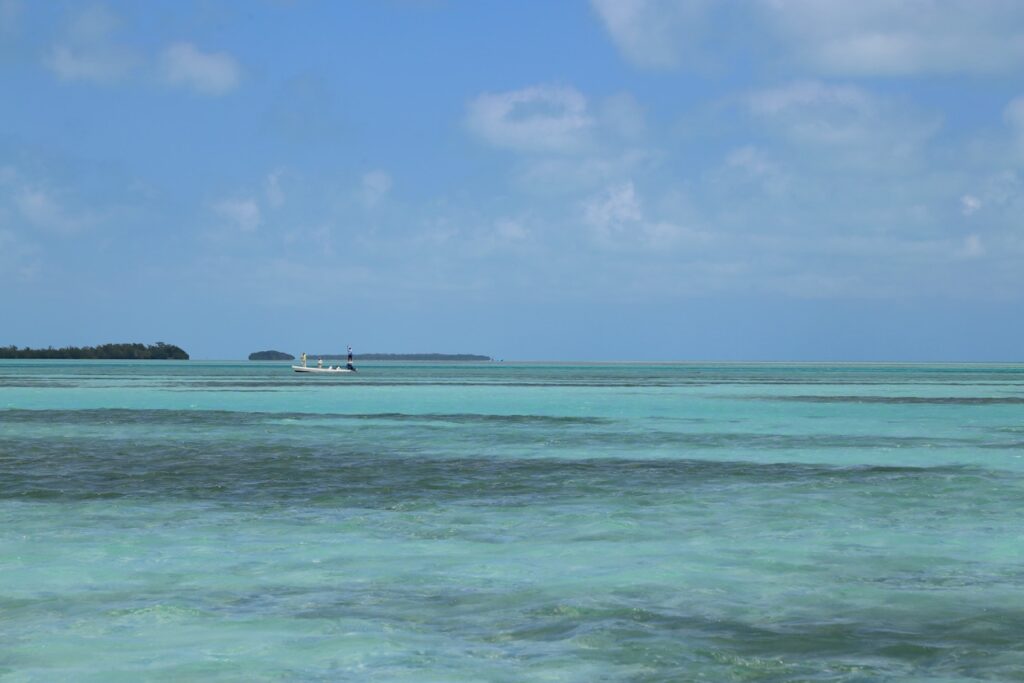A flat near Ambergris Caye, Belize. Photo: Scott Morrison
At the core of BTT’s approach to conservation is a focus on habitat protection. Healthy habitats equal healthy fisheries. And although the Covid-19 pandemic posed a challenge, we were able to use technology to our advantage, continuing education and advocacy through online meetings and outreach. BTT’s Belize-Mexico Program Coordinator, Dr. Addiel Perez, shares some of the issues we’ve been addressing, as well as plans for 2021.
In 2020, BTT focused on educating guides, anglers and other stakeholders in Mexico about best fish handling practices, as poor handling is still prevalent there. BTT will continue this effort in 2021 with the help of guides, important caretakers of the fishery. Catch-and-release fishing can be a good conservation tool, but only if fish survival is high. Therefore it is of utmost importance that the best handing practices are used and shared through education and outreach. If survival is low due to poor handling, fish abundance will decline and with it the fishery.
Belizean guides and anglers have made great progress in their fish handling practices. Unfortunately, we are seeing a concerning issue arise in some areas of Belize, having found that some are fishing at bonefish pre-spawning aggregation sites. Even though this is predominantly catch-and-release fishing, it is likely having negative impacts on the population. The bonefish reach the pre-spawning location after a long migration—the spawning process is stressful—and many opportunistic predators target tired or weakened fish at their pre-spawning sites.
Both Mexico and Belize continue to experience threats from habitat loss and degradation. In the Xcalak region of Mexico, the expansion of the Zaragoza Canal will further impact Corozal-Chetumal Bay by introducing more salt water into the estuary and funneling large mats of sargassum into the Bay. Sargassum is already causing problems along the Mexican Caribbean Coast from Xcalak to Tulum, with a lesser impact on Belize. It is worrisome to think this damage may also reach into the Bay.
Belize flats habitats are also under increasing threat from development proposals by private investors, who are clear-cutting mangroves and dredging the flats habitats for fill to build up the cayes. Furthermore, such projects claim rights to public waters and deprive guides and anglers of the ability to use the flats habitats for fishing bonefish, permit, tarpon, jacks and reef fishing guides for baitfish. This impacts the guides’ abilities to make a living and support their families and communities.
There is also good news: gillnets were banned thanks to the efforts of the flats fishing community and associations and local NGOs of Belize. But the ban is only the first step. Significant work remains to enact effective enforcement, education, and to find sustainable alternative livelihoods for those who have depended on gillnets to make a living and provide food. The other good news is that a change of government in Belize ushers in a new Ministry of Blue Economy. The hope is that this new Ministry will strategically consider sustainable use and habitat protection of coastal areas, especially flats habitats, as part of the evaluation process for proposed developments.
Moving forward, BTT will continue to prioritize coastal habitat protection as needed, and advocate for development that is sustainable and in accordance with communities’ rights and regulations. We will also continue to push for enforcement of regulations for fisheries activities as well as the laws that are in place to ensure habitat protection.
Finally, a major focus in 2021 will be an approach to education that is aimed at involving communities in decision-making during the planning of proposed projects to ensure that the legal rights of communities to access local resources are respected and established.




